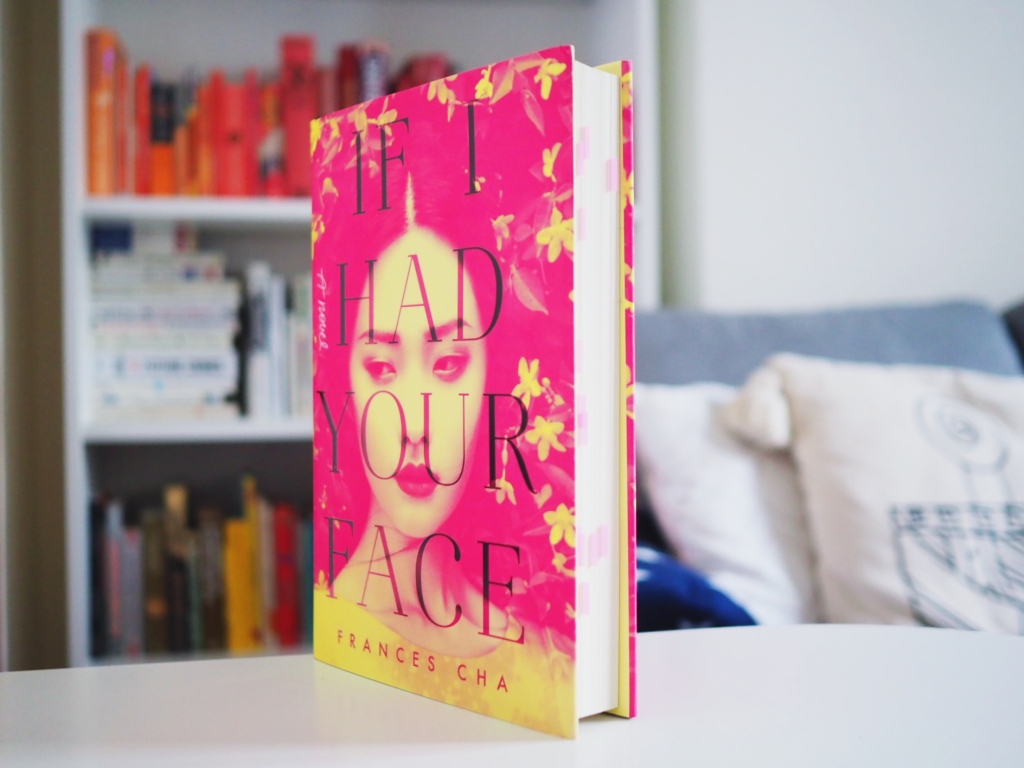This book was the first one that I read that gave an insight into South Korean life and its culture. By the time I was done with it though, it has left me longing for more. More depth, to be more stylistically impressive and to be able to see more development of the characters. It might be an interesting intro to such a foreign-feeling universe for those living in the Western world but it just felt a bit too flat in my point of view.
Even with the complex personal problems of each of the four main characters, it still keeps the feeling of a lighter novel that you can read in between and rather relax your mind than challenge it. The most impressive parts of the narrative were about the extreme sides of the Korean society – relations between children and their parents, the expectations towards women to only become worthy once becoming a wife and a mother, as well as the biggest one of them – the beauty standards.
The stitches on her double eyelids look naturally faint, while her nose is raised, her cheekbones tapered, and her entire jaw realigned and shaved into a slim v-line.
p. 4
Everyone’s recovery time varies wildly, they said. But a girl at the salon whose cousin got it done told me it took over a year for her to look normal. Her cousin still couldn’t feel her chin and had a hard time chewing, she said, but she had gotten a job in sales at a top-tier conglomerate.
p. 15
About half of our school got their eyes done that year because the teacher offered us a 50 percent discount.
p. 5
Even as a girl. I knew the only chance I had was to change my face. When I looked into the mirror, I knew everything in it had to change, even before a fortune-teller told me so.
p. 30
“There is no greater sorrow than not getting married!” she says. “The thoughts of you alone in life, no children, that is what is making me old and sick.”
p. 29
While reading “If I Had Your Face”, I felt some resemblance to the book “Three Women“ I read earlier this year. Whereas “Three Women” was written as non-fiction, Frances Cha managed to make her story much more believable and vulnerable, without touching upon all possible clichés within the lives of her four female characters. Whereas the style didn’t necessarily stand out by being distinct, there were some passages every now and then, when you get to enjoy some creative expressions.
Sometimes I wonder if I can hear better than before [a character in the book who has lost her ability to speak]. The wind, for instance. I don’t remember it having so many shades of sound.
p. 12
[…] I could see their unusual brightness even from inside the house. There is something about happy people – their eyes are clear and their shoulders hang lower on their bodies.
p. 41
If you have heard of this book before, it is worth picking it up to get a little glimpse into the way life looks like in South Korea. The personal touches of the author strongly come across, which are especially noticeable when a lot of comparisons are drawn between the lifestyle in New York and Seoul (since Frances Cha has spent a major part of her studies in the States, while currently living in Brooklyn). Without too high expectations, this will be quite a pleasant read but I wouldn’t necessarily recommend it from my side since it didn’t really stand out among all the books I read this year.
I don’t know, I have half a mind to move to Hong Kong or New York like a few of the older girls I used to work with, who told me they found jobs in room salons there. Apparently the standards of beauty are very low in those cities and people walk around with all kinds of ugly faces.
p. 108
She will often strike up conversations with strangers on the subway, to their surprise and distrust, and comes away baffled by their hostility. ‘In New York, you can talk to anyone about anything at any time and have a conversation so long you’ll fall a little bit in love with that person, and then never see them again,’ she told me. It now feels strange to her that in Korea, of you try to strike up a conversation with someone you have not been introduced to, people look at you as they would at a large rat, but if even the flimsiest of introductions is made by the most peripheral of acquaintances, they fuss over you like a long-lost sibling.
p. 166

★★★☆☆ (3/5)
Edition: ISBN 978-0-593-12946-3
Ballantine Books, 2020